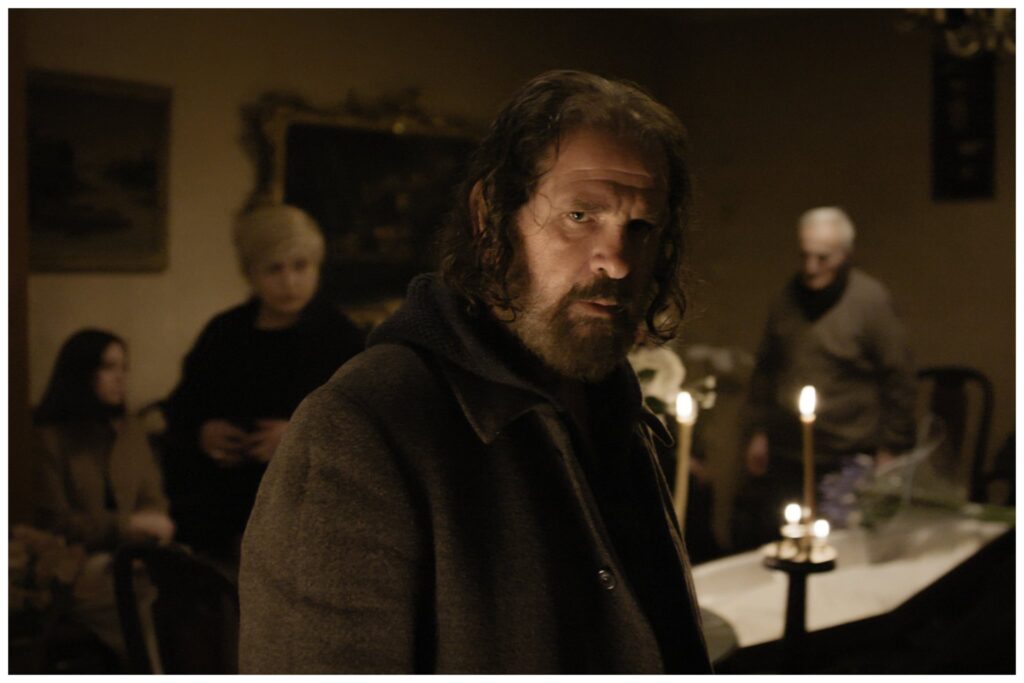პროექტს „ფემინსტრიმი” ქალთა ფონდი საქართველოში და ჰაინრიჰ ბიოლის ფონდის თბილისის ოფისი წარმოგიდგენთ.
ნინი ხუროშვილი პოდკასტი:
ამ პოდკასტში ვისაუბრებ ჩრდილოეთ სირიაში (ქურთისტანში) არსებულ თავისუფალ ქალთა ეკოსოფელ – ჟინვარზე. წარმოდგენილი ინფორმაცია ეფუძვნება სოფლის მანიფესტსა და ერთ–ერთ მაცხოვრებელთან ჩაწერილ ინტერვიუს.
ახლო აღმოსავლეთში ქალთა რევოლუცია რამდენიმე ათასწლეულის წინ დაიწყო მდინარე ევფრატის, ტიგროსის, ხაბურისა და ზაპის ნაპირებზე. ბუნებაზე, რაციონალობასა და სხვადასხვა ეთიკურ მოდელებზე დაყრდნობით, ქალები ისტორიულად მნიშვნელოვან ცხოვრების წესს ავითარებდნენ. მათ მიერ შექმნილი სოციალური ისტორია, დღემდე არის შემორჩენილი ათამდე გამოქვაბულში. იერარქიული სოციალური და პოლიტიკური სტრუქტურებით წარმოქმნილი დაბრკოლებების, რეპრესიებისა და უარყოფის მიუხედავად ქალთა მოძრაობა დღემდე ცოცხლობს და ალტერნატრიულ განვითარების გზად კომუნალურ ცხოვრებას გვთავაზობს. კომუნალური ცხოვრების წესისა და სტილის დაბრუნება ძალისხმევას მოითხოვს, რათა დღევანდელი გამოცდილებები და ინტელექტუალური მდგომარეობა, შესაბამისობაში მოვიდეს აწ უკვე განვლილ ისტორიასთან.
ჟინვარი, ქურთულად ქალთა საცხოვრებელ სივრცეს ნიშნავს. ამჟამინდელი პოლიტიკური კონტექსტის გათვალისწინებით, თავისუფალ ქალთა პირველი ეკოსოფელი, სირიაში ისტორიულად დაგროვილი გამოცდილებების გაცოცხლებასა და მათთან დაკავშირებას ცდილობს.
ერთი მხრივ, ეს დიდი პოლიტიკური სიახლეა, რომელიც აბდულა ოჯალანის მიერ შემუშავებულ კონცეფციას ეფუძვნება, ხოლო მეორე მხრივ, იდეოლოგიაა, რომელიც სათავეს ქურთი ქალების ისტორიული რეზისტენციიდან იღებს.
საზოგადოება სოციალური ცხოვრებისთვის საწყისი მოცემულობაა. ჩვენ, ადამიანები მუდმივ კავშირში ვართ ერთმანეთთან, გარემოსა და ბუნებასთან. სწორედ ამ კავშირების საშუალებით არის შესაძლებელი გადარჩენა და განვითარება. დღევანდელ სოციალურ ცხოვრებას კი, დაკარგული აქვს მნიშვნელობები. საზოგადოება დიდ დანაკლისს განიცდის ქალების ჩაგვრის ისტორიითა და პოლიტიკით. ამიტომ ჩვენ, წარსულში ვეძებთ იმ ქალების სიბრძნეებს, შემოქმედებას, რწმენებსა და თვითშეგნებებს, რომლებიც საფუძველს უყრიდნენ თვითკმარ საზოგადოებრივ ცხოვრებას.
ჩვენ, ამ მიწასთან ისტორიულად დაკავშირებული ქალები, ცხოვრებას თვისობრივი ტრანსფორმაციებით ვიწყებთ, რათა გავაცნობიეროთ თუ ვინ ვართ დღეს, როგორ ვცხოვრობთ და როგორ უნდა ვიმოქმედოთ მომავალში. ვეყრდნობით იმ ქალების გამოცდილებებს, რომლებიც გამოსავლის მოსაძებნად ინკლუზიურობის, კომუნალური ცხოვრებისა და საერთო მიზნების პრინციპებიდან ამოდიან, რაც თავის მხრივ რევოლუციური პროცესია.
ჩვენ, ქურთები, გარემოცულნი ვართ სისტემატიური ომებით, კულტურული და ეთნიკური გენოციდით. სწორედ ამ მიზეზების გამო, ჩვენს მიწაზე წინააღმდეგობა იზრდება. დიდი ენთუზიაზმითა და მონდომებით ვაშენებთ ისეთ საცხოვრებლებს, რომლებიც შეესაბამება ქალის ისტორიულ და ადგილობრივ არქეტიპს. ჩვენთვის მისაბაძი ინიციატივა იყო უმოჯას ქალთა ეკოსოფელი აფრიკაში, კენიაში, რომელიც ადგილობრივი ქალების მიერ არის წამოწყებული და სოციალური პრობლემების გადაჭრის საუკეთესო მაგალითად იქცა.
თავიდან ბევრი იდეა არსებობდა თუ სად უნდა აშენებულიყო ჟინვარი. საბოლოოდ, ქურთ ქალთა რევოლუციამ ამ იდეებს თავი მოუყარა და მჩაგვრელი კულტურისგან თავისუფალი უტოპია როჟავაში განათავსა.
ჟინვარის საფუძვლის შემქმნელმა ადგილობრივმა ქალებმა 2017 წელს დააარსეს თვითმმართველი საბჭო, რომელიც გეგმავდა მოსამზადებელ სამუშაოებს: ეძებდა მიწას, ესაუბრებოდა ადგილობრივ მოსახლეობას რეგიონში და შეიმუშავა სოფლის მმართველობითი სისტემა.
წარმოიდგინეთ, ქალთა პირველი ეკოსოფელი ახლო აღმოსავლეთში, ქალების მიერ ქალებისთვის აშენებული. იცით ამას რას შევადარებდი? წყალში დიდ საგანს რომ ჩააგდებ და ბევრ ტალღას გამოიწვევს. რა თქმა უნდა, მსგავსი კომუნის წამოწყება თავიდანვე სირთულეებთან იყო დაკავშირებული, მაგრამ რეგიონში მაცხოვრებელი ქალების მხარდაჭერამ ჩვენი სოციალური ურთიერთობები საგრძნობლად გააძლიერა. ძალიან ბევრი კაცი გარშემო, აგდებულად და არასერიოზულად უდგებოდა ჩვენს საქმიანობას. გვეუბნებოდნენ, რომ ვერ ავაშენებდით სახლებს, რომ ეს ჩვენთვის შეუძლებელია, იმიტომ რომ ქალები ვართ, მაგრამ ჩვენ შევქმენით ალტერნატიული რეალობა: დავაგეგმარეთ და ავაშენეთ 30-მდე საცხოვრებელი სახლი, სამკურნალო ცენტრი, საგანმანათლბლო აკადემია, სკოლა და საერთო სამზარეულო, რამაც ბევრი კაცის დამოკიდებულება საგრძნობლად შეცვალა.
ბოლო პერიოდში, თურქეთისა და მასთან მოკავშირე ისლამური ჯგუფების მხრიდან, მუდმივად ხორციელდებოდა შეტევები როჟავაზე, რის გამოც რეგიონში დიდი შიში სუფევს. ომის პარალელურად განსაკუთრებული ზიანი მოაქვს ქალაქების ოკუპაციას და ჩვენი სამეურნეო ველების გადაწვას, რაც ადგილობრივ ეკონომიკაზე კრიზისულად აისახება და ხალხს საცხოვრებელი ადგილის შეცვლას აიძულებს. სოციალური სისტემების ნგრევა ყველაზე მეტად ქალებსა და ბავშვებს აზიანებს. ომის მსხვერპლ ქალებს დაუყოვნებლივ სჭირდებათ სარეაბლიტაციო სივრცე.
გვჯერა, რომ საზოგადოებრივი ცხოვრების წესი პირდაპირ კავშირშია ფიზიკურ და ფსიქიკურ ჯანმრთელობასთან. მიმდინარე წლის მარტში გავხსენით სამკურნალო ცენტრი, რაც სოფლის დაარსებამდე აუხდენელი ოცნება იყო. როდესაც ვსაუბრობთ ბუნებრივ მკურნალობაზე, არ ვგულისხმობთ მხოლოდ მცენარეებით განკურნების მეთოდებს, არამედ სოციალური ცხოვრების გაუმჯობესებასაც. ჩვენთვის მნიშვნელოვანია გამოვიკვლიოთ და შევისწავლოთ მკურნალობის ჰოლისტური მიდგომები, რაც მოიცავს როგორც, ფიზიკური ტკივილების განკურნებას, ასევე ურთიერთობების გამოსწორებას ერთმანეთთან, ბუნებასთან და ა.შ.
უამრავი ქალი სხვადასხვა ჩივილით მოდის ჩვენთან. მათი ტკივილები დაკავშირებულია მძიმე ოჯახურ შრომასთან, მუდმივ სტრესსა და შფოთთან. ეს არიან ქალები, რომლებიც ზრუნავენ მთელს ოჯახზე და საპასუხოდ არავინ ზრუნავს მათზე. სამკურნალო ცენტრი სივრცეა, სადაც ქალები ერთმანეთს ხვდებიან და ესაუბრებიან ყოველდღიურ ცხოვრებისეულ პრობლემებზე, უზიარებენ გამოცდილებასა და ცოდნას, რისი საშუალებაც მათ სხვა სივრცეებში იშვიათად ეძლევათ. სოციალური დანიშნულების გარდა, ასევე მნიშვნელოვანია, სამკურნალო ცენტრის საგანმანათლებლო მიმართულება. უხუცესი ქალები, რომლებიც ფლობენ ტრადიციული წამლობის ცოდნას, ხშირად მართავენ საუბრებსა და სემინარებს განკურნების მეთოდებსა და ჯანმრთელობის შესახებ.
ზოგი ფიქრობს, რომ ახლო აღმოსავლეთი ზედმეტად მოწყვეტილია ე.წ. განვითარებას. დასავლეთის ინდივიდუალისტური და დანაწევრებული საზოგადოებრივი ცხოვრების წესი რადიკალურად განსხვავდება ჟინვარის ყოველდღიურობისაგან. დღევანდელ საზოგადოებებს გააზრებული არ გვაქვს, თუ რამხელა ქაოსში ვცხოვრობთ და რამდენად ზედაპრულად ვუდგებით ძირეულ პრობლემებს. აქ კი, ჩვენ ვცდილობთ ჩავუღრმავდეთ საზრისებს და ჰოლისტური მეთოდების გამოყენებით გავაანალიზოთ და გავუმკლავდეთ არსებულ სიძნელეებს. კომუნალური ცხოვრება დაბრკოლებების ერთად გადალახვის სივრცესა და საშუალებას იძლევა.
ჩვენ მიერ სახლების მშენებლობა მნიშვნელოვანი რეზისტენციის აქტია ძალადობისა და ომის წინააღმდეგ. როჟავაში არსებობს ტალახის აგურითა და მიწით, ეკოლოგიური სახლების ერთობლივი მშენებლობის ტრადიცია. მოცემული მდგომარეობიდან გამომდინარე, რეგიონში ახალი საცხოვრებელი სივრცეების შექმნის სასწრაფო საჭიროებაა. ქურთი უხუცესების დახმარებით, ვცდილობთ ეს საქმიანობა განვავითაროთ.
ჩვენი დედებისგან დანატოვარი ცოდნების გამოყენებით ვქმნით ადგილობრივ ეკონომიკას. ძირითადად სასოფლო-სამეურნეო საქმიანობას ვეწევით. მოგვყავს სხვადასხვა კულტურა, ვაცხობთ პურს ადგილობრივი და მეზობელი სოფლის მცხოვრებლებისთვის. ვზრდით და ვუვლით ცხოველებს და ვაწარმოებთ რძის პროდუქციას.
ადგილობრივი ბავშვები ჟინვარის დაწყებით სკოლაში იღებენ განათლება. ჟინეოლოგია – ანუ მეცნიერება ქალების შესახებ, შეისწავლის ქალების ყოფასა და ისტორიას. ის 2008 წლიდან იღებს სათავეს და აკრიტიკებს დღევანდელი სოციალური მეცნიერებების მიდგომებს სახელმწიფოსთან, იერარქიასა და კაპიტალთან.
ჟინეოლოგიის საშუალებით ქალები ჟინვარის აკადემიაში სწავლობენ სოციალური და მეცნიერული განკურნების მეთოდებს და იღრმავებენ ცოდნას ხელოვნებაში, პროდუქციის წარმოებაში, ეკოლოგიაში, ეკონომიკაში, ჯანმრთელობაში, დემოგრაფიაში, ისტორიასა და თავდაცვაში.
ჟინვარი სამომავლოდ გეგმავს განავითაროს ეკოლოგიური თვითმდგრადობისა და კომუნალური ცხოვრების საკითხები. ვაპირებთ, გავაუმჯობესოთ სკოლა, ავაშენოთ, სამედიცინო ლაბორატორია, პატარა კაფე და სათამაშო მოედანი ბავშვებისთვის. ასევე, ვგეგმავთ მზის და თერმულ ენერგიებზე გადასვლას და წყლის ირიგაციის სისტემის განვითარებას.
პანდემიის პერიოდში, როდესაც ყველაფერმა შეწყვიტა მუშაობა და ხალხი იზოლაციაში მოექცა, ნათლად დავინახეთ თუ რა ხდება დიდ ქალაქებში, როგორ არის ხალხი ბუნებასა და ერთმანეთს მოწყვეტილი. რეალურად, არავის აღმოაჩნდა პანდემიასთან გამკლავების უნარი და რესურსები, რადგან არსებულ სახელმწიფოებრივ სისტემებს სოციალური საფუძვლები არ გააჩნია. ჩვენთან სოციალური ურთიერთობები და ყოველდღიური საქმიანობები უწყვეტად მიმდინარეობდა, ამიტომ ცხოვრება არ შეფერხებულა და შექმნილ ეკონომიკას სერიოზული ზიანი არ განუცდია.
გვჯერა, რომ ჩვენი მიზნები ფასეულია. ქალებისთვის თავისუფალი სივრცეების შექმნით, შეგვიძლია გადავჭრათ ჩრდილოეთ სირიაში არსებული ეკოლოგიური, სოციალური და სხვა დიდი პრობლემები. როჟავაში ქალების სოფლის აშენება მნიშვნელოვანი ისტორიული ნაბიჯია, ზოგადად, ქალთა ემანსიპაციის ისტორიაში.
სირიის სამოქალაქო ომის პარალელურად, ჟინვარის მიზანია შექმნას ძალადობისგან თავისუფალი, მშვიდობიანი თანასაცხოვრებელი სივრცე. ქაოსს ყოველთვის მოაქვს ინოვაცია, ამ ქაოსის შემდეგ როჟავაში იბადება ლიბერალური და დემოკრატიული ცხოვრება, სადაც გამოსავლების ძიების პროცესს პირველ რიგში ქალები უძღვებიან.
ჟინვარი წარმოადგენს თვითორგანიზებად საზოგადებას, რომელიც მიესალმება განსხვავებული ღირებულებების, ისტორიების, რწმენების, ენისა თუ ასაკობრივი ჯგუფების ქალებს.
In this podcast I will be talking about Jinwar – free women’s eco village in Northern Syria, Kurdistan. Presented information is based on the manifest of the village and conducted interview with one of the residents.
Several millennia ago in the Middle East a women’s revolution took place. On the shores of the Euphrates, Tigris, Habur and Zap rivers, women led the development of a meaningful life, based on ethics, nature, humanity, and rationality. This history of the Middle East, and women’s own social history is still alive and vividly reflected on more than ten different caves.
Despite obstacles, repression, and denial, a multifarious resistance to hierarchical social structures, in favor of an alternative communal life, has continued up to the present. We seek to reclaim a meaningful life by advancing an alternative communal life approach. Our journey to reclaim authentic communal life is also an endeavor at revivification efforts through experience and intellect.
The word “Jinwar” means “woman’s place” or “woman’s land.’’ Considering nowadays political context, free women’s first ecovillage tries to connect with its historical roots and make them alive again. On the one hand this concept is a big political innovation developed by Abdullah Öcalan, on the other hand it has been taking a place from the Kurdish women’s movement and historical resistance.
Society is the base for our lives, you can not survive alone. We are all connected to each other, to the environment and nature. Against the background of a present-day social life that has lost all meaning, we look back to the socially constructed features of earlier eras and examine the wisdom, artistry, beliefs, and self-esteem of women who lived in them.
We, as women of these lands, affirm the truth “who we are, how we live, and how we should live” by rebuilding our lives in the framework of transformative characteristics of different historical periods. We draw upon the life experiences of women who used inclusive, communal, and enriching opinions and common goals to enable solutions. We consider it a revolutionary process led by women.
We, Kurds, are absorbed in wars and cultural and ethnical genocides. For this reason, in our own land, we have seen a resistance grow. With great excitement and enthusiasm, we are building our own living spaces that are suited to our history as women. As we work, the efforts of other women organizing women’s villages have greatly inspired us. A striking example is the Umoja women’s village in Kenya, Africa, which maintains great vitality as a concrete alternative to social problems.
From the very beginning there had been several ideas where to build women’s ecovillage. But finally Kurdish women’s revolution in Rojava found the right time and a place recollecting all these experiences and placing/establishing them in Jinwar, as an alternative example from oppressive culture.
In 2017 Women’s self organized group, founders of the ecovillage, established a women’s council, which was taking care of the preoperational process step by step: looking for a land, communication with locals in the region and created a system of non-hierarchical self-governance.
Imagine the first women’s ecovillage in the Middle East built and created for women. It’s like dropping a big object into the water and causing these really huge waves.
Of course, we faced various challenges from the very beginning, but with the support and solidarity of local women, we easily developed social connections in the region.
On the other hand there had been men, who had been saying that ‘we can not build up the village, because we are women, it is not possible for us.’ But we created an alternative reality. Build up 30 ecological houses, educational Academy, healing center, the primary school and the communal kitchen, which made them overthink/reconsider their discouraging attitude.
Today war and crime are ubiquitous. There have been a lot of attacks on Rojava recently from Turkey and it’s ally islamic groups, which obviously threatened people in the region. War is going on in many dimensions: occupying the cities, putting the fields on fire which brings devastating results for the local people and economy. It forces indegenous inhabitants to flee and constantly change their historical living places. This social demolition hurts women and children the most. Some women, victims of war, urgently need free spaces to heal and recover.
We believe that the society lifestyle is closely linked to physical and mental health. In March 2020 we opened a healing center, which has been the dream from the very beginning. When we say natural medicine we don’t only mean healing with pants, but finding ways to improve social life. We try to observe, learn and develop holistic approaches to healing, by building up healthy relationships between each other and nature.
Lot of women who are visiting the center are experiencing different pains. Anxiety, stress and illnesses connected to their daily women’s role pressure them to work hard for their own families. These are the women who carry about the rest of the family but never get any help/responsive from their side. Women are gathering in the center to socialize as well. They have difficulties to find such spaces where they share their own experiences, knowledge and simply their life stories. We also encourage the educational seminars or talks from the elder women, who had been inheriting traditional knowledge from their mothers.
Some people consider the possibility of rebuilding and developing in the Middle East to be too remote even to discuss. It’s far from the western developing agenda. The individual lifestyle we see in the western countries is significantly different from Jinwars lifestyle.
We don’t often realize the chaotic world we live in. There is no tendency of going deep into the core of the problems. But here, in Jinwar, by using communal power and lifestyle we can overcome the struggles and challenges together.
But here as much as anywhere, rebuilding our home is the most significant response to the forces of destruction. On this basis, in Jinwar, we comprise ecological structures made of soil and straw, namely mud brick. These structures exist all over Rojava as a social tradition. The region has an urgent and vital need for the development of new living spaces that will strengthen the reclaimed lives of women and children. That’s why we are leading and evolving this field with the help of the local elders.
History began with women’s toil in agriculture, and through women’s wisdom in planting, gardening, and cultivation. We build our economy using the historical knowledge of our mothers. We grow various cultures and bake bread for the local and neighbouring village residents. We take care of the animals and produce dairy.
With Jineoloji, (the science of women), women can develop social and scientific remediation methods and deepen their knowledge of education, art, production, ecology, economics, demography, health, history, ethics-aesthetics, and self-defense. Jineoloji has taken a place since 2008 and criticizes the approaches of social sciences which defend the structures of the state, patriarchy(hierarchy) and capital.
The main future focus of the ecovillage is to develop self sustainable and communal life aspects, improving the school, building a healing center laboratory, small cafe, and a playground for the kids. As one of the important bases of our self-sufficiency, we will improve our solar and thermal energy sources and develop water irrigation systems.
When the Covid-19 had spread, we observed how everything had stopped working, the cities went into an isolation, and the social connections were cut between people and nature. It was clear to see that the existing system doesn’t have a core base and couldn’t handle this challenge due to lack of social resources and skills. Economy of Jinwar didn’t experience many crises, because we went on living with our natural seasonal life cycle.
We believe that our reasons are valid and that the traces and legacy of women’s resistance are very strong in our area. In this sense, Jinwar represents the construction not only of a village or a settlement but of life. With the women’s revolution in Rojava, the creation of women’s free spaces in all of Northern Syria, starting with the village, has become the main objective. By means of such developments, we will solve ecological, sociological, and vital problems. Building a village based on women’s perspective is an important step in the history of the women’s struggle for emancipation.
In the midst of the ongoing Syrian Civil War, Jinwar aims to provide an alternative, peaceful place for the coexistence of women, free of any and all violence. Every period of chaos also brings innovations, so out of the chaos in Rojava will be born a democratic and liberal life, with solutions developed and pioneered by women.
Jinwar represents a self organized women’s society which is open and welcomes women with different values, stories, beliefs, religions, languages or age. We have the power to take purposeful action to make our dreams into reality. Based on our historical roots, our history, our faith, our struggle as women, our ethics and aesthetics, and our search for wisdom and meaning, we will have venues to implement our utopias.


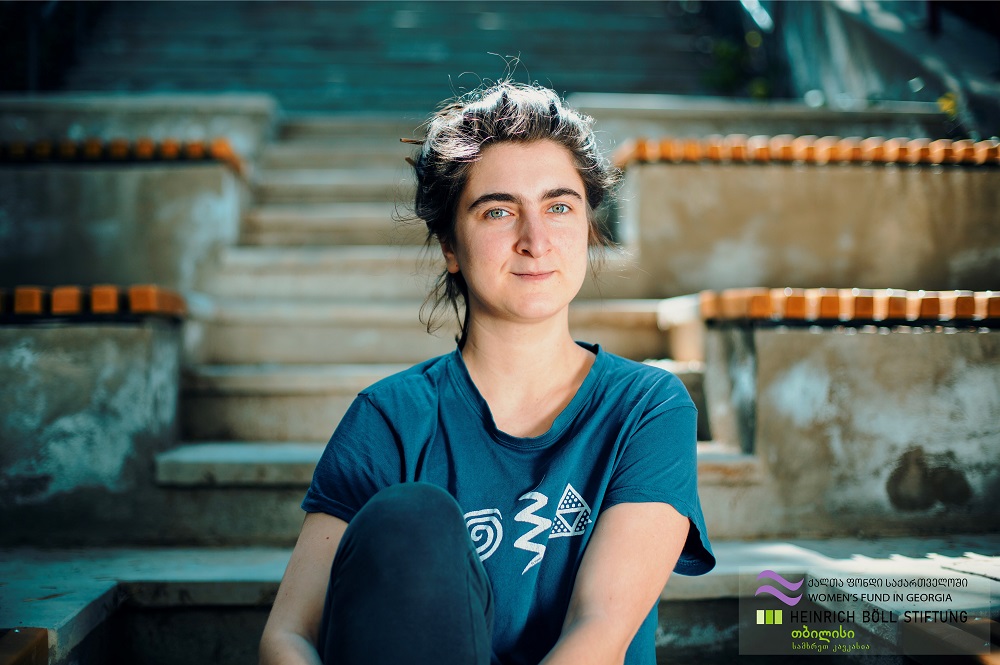


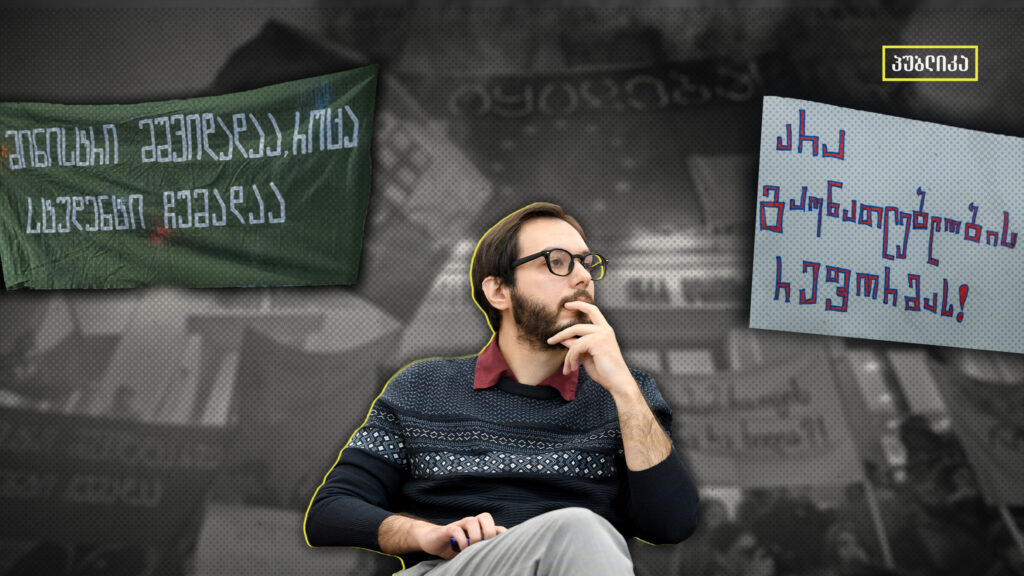
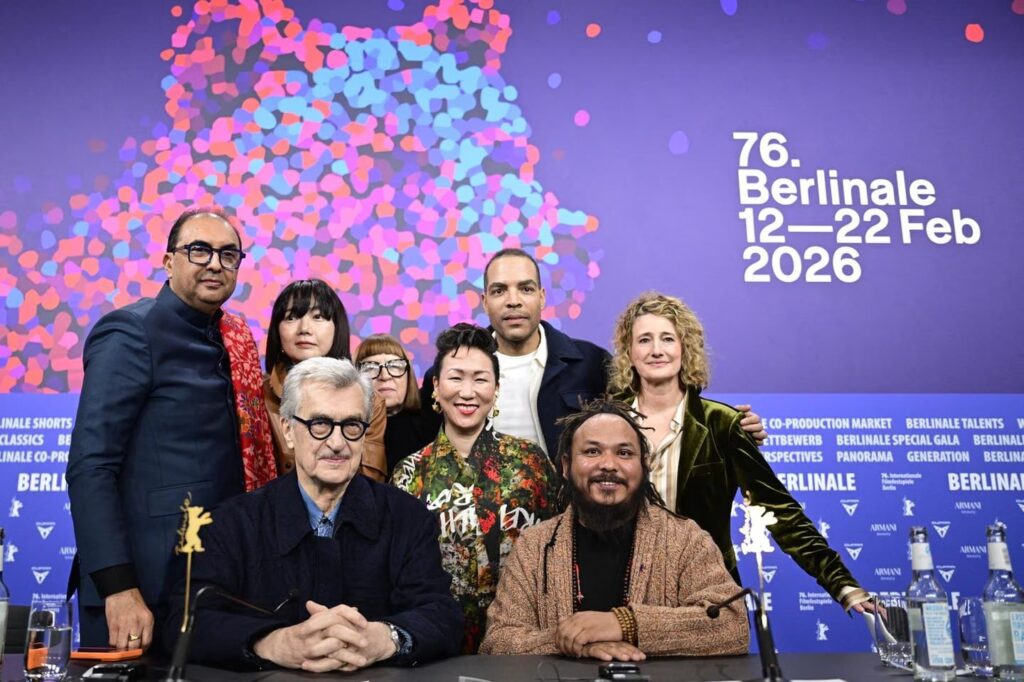
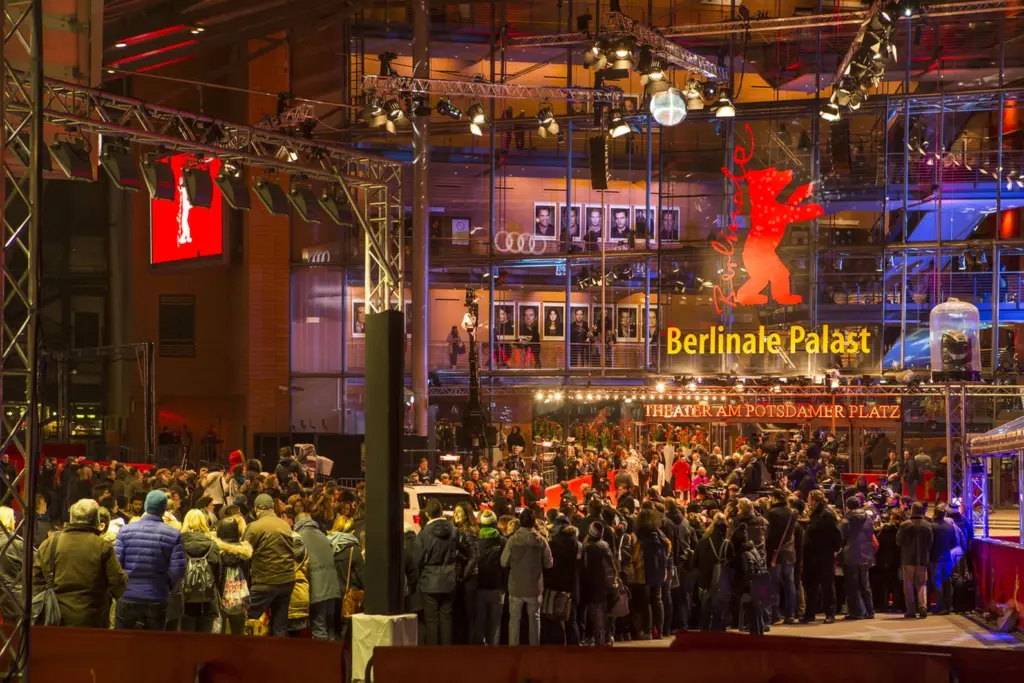
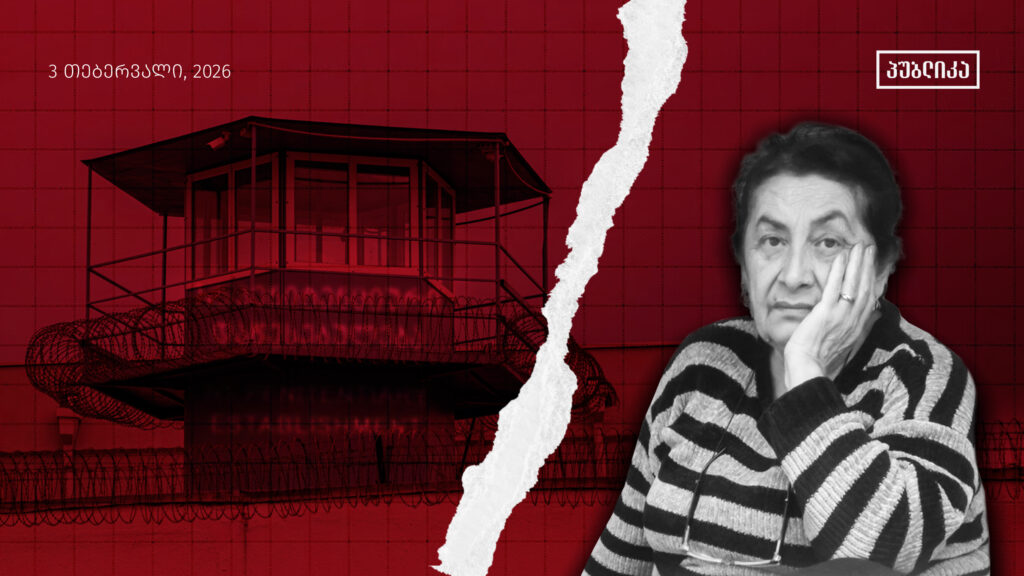
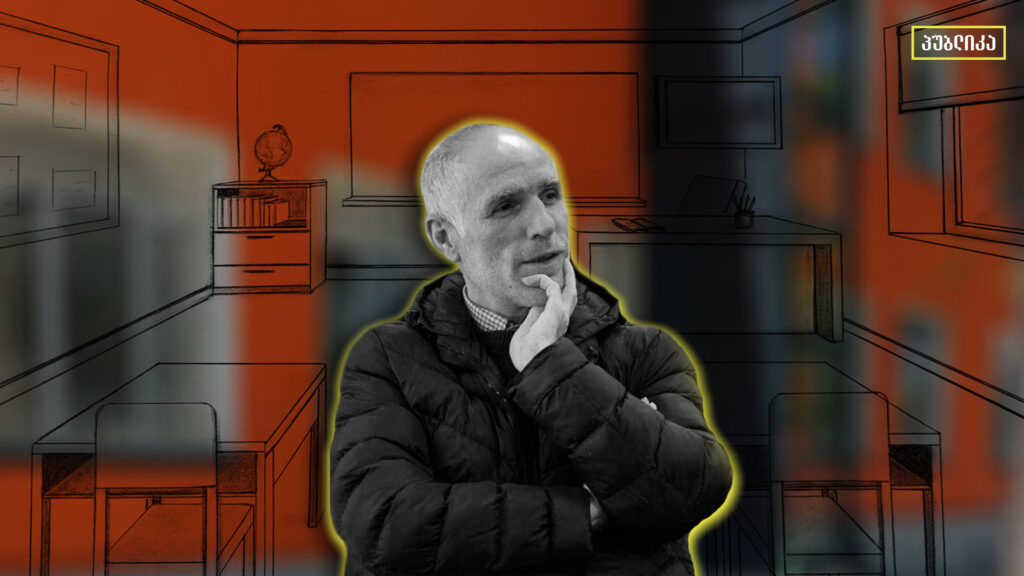
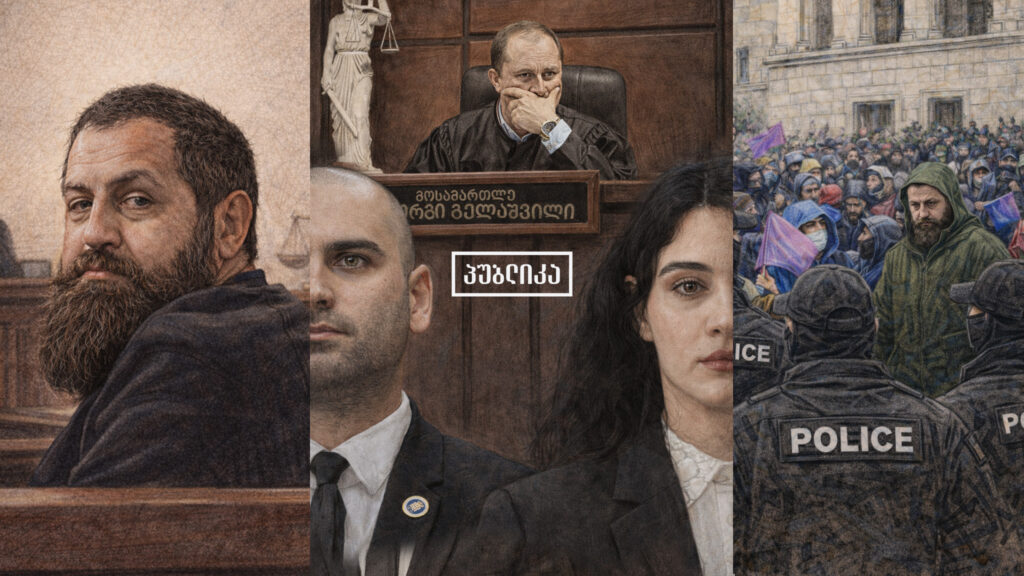
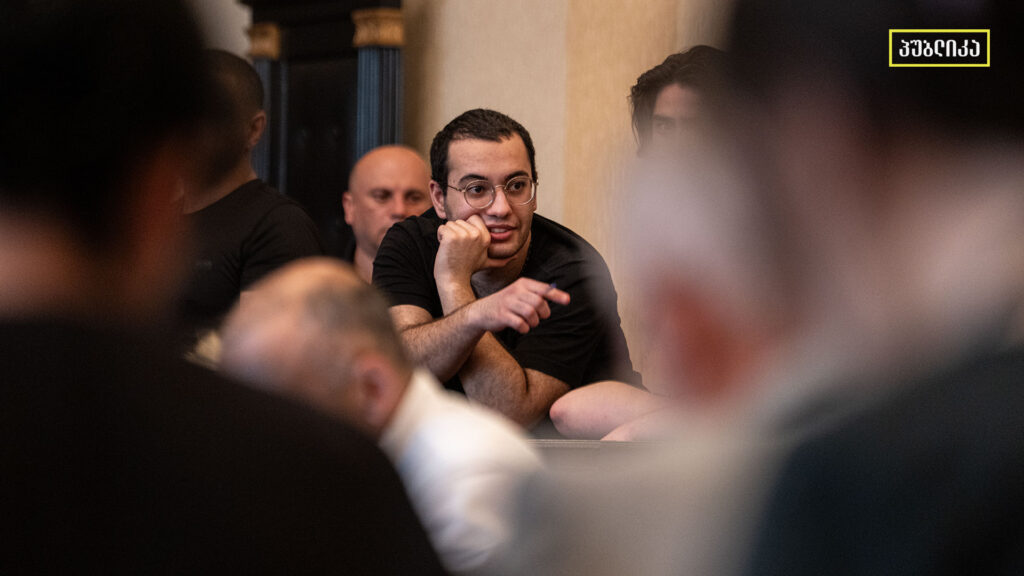
![არაა დადგენილი, რომ [დეკემბრის მოვლენები] სწორედ მათი საუბრის შედეგი იყო - რას წერს ომბუდსმენი](https://publika.ge/app/uploads/2026/01/publika.ge-2-1-1024x576.jpg)
